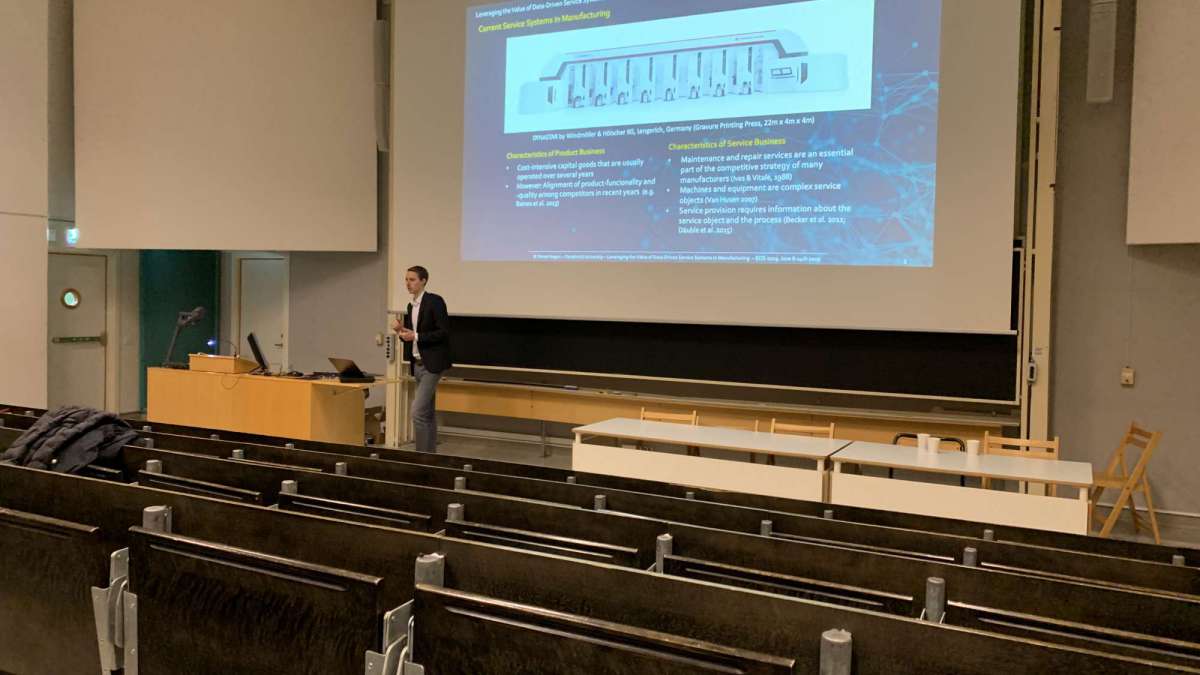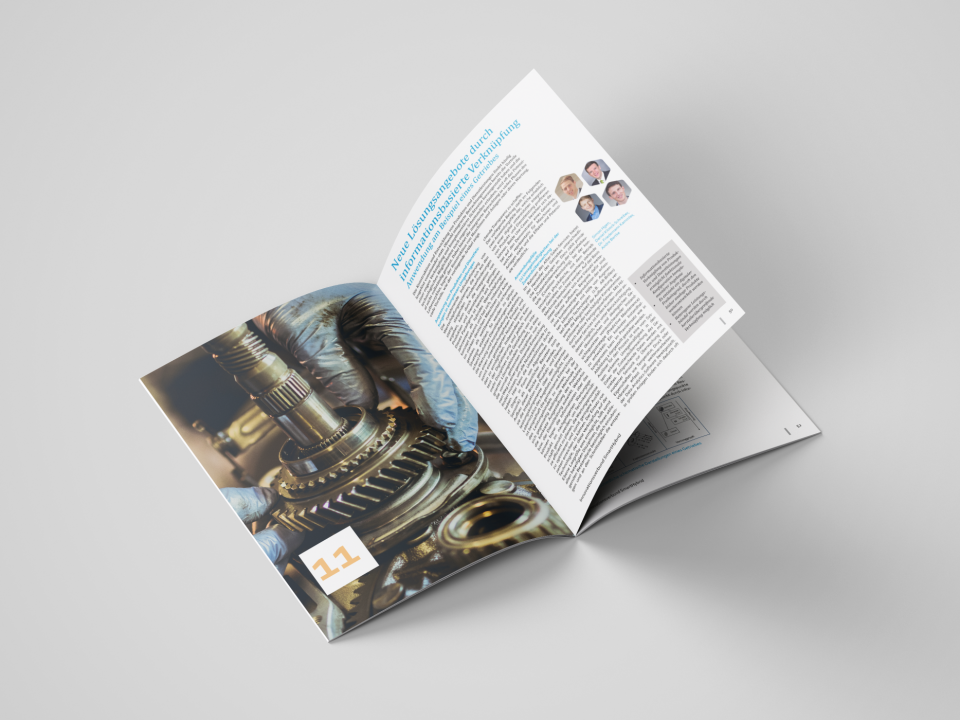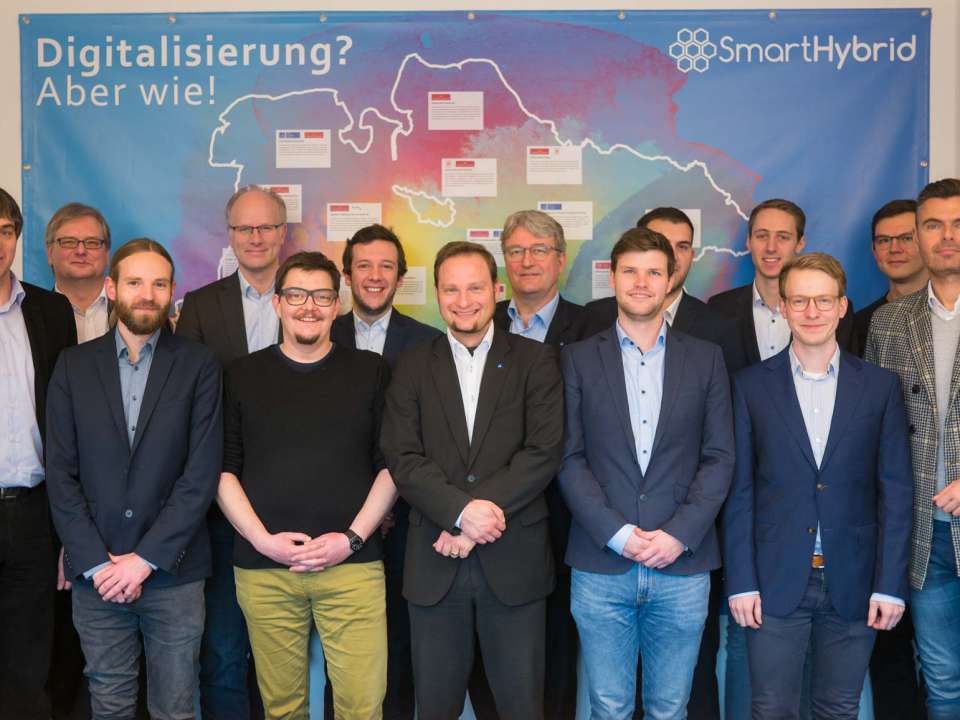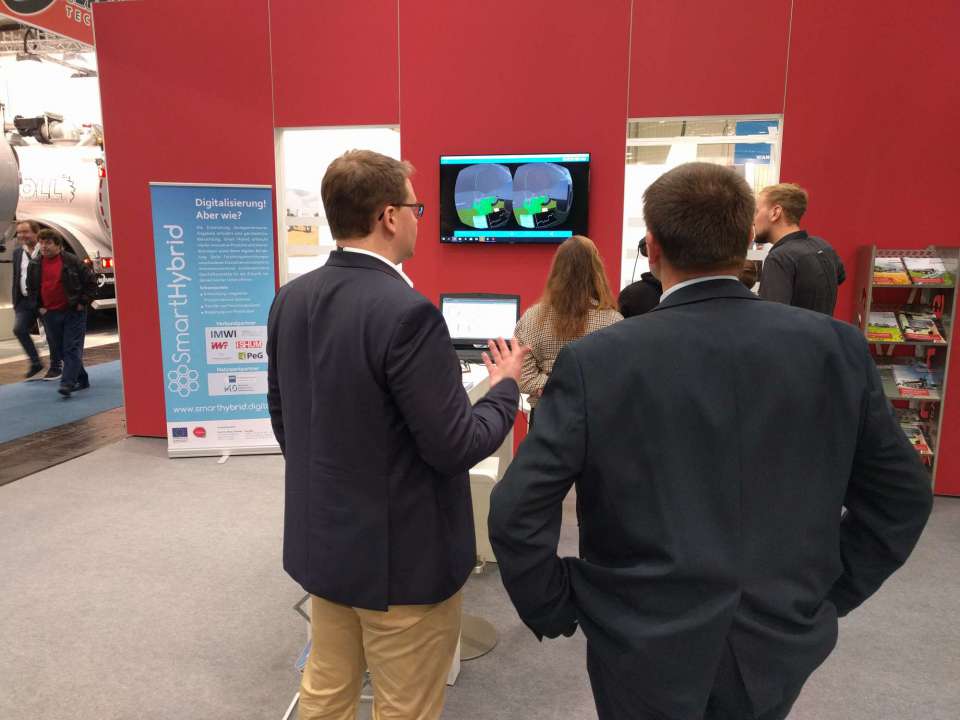Forschungsbeitrag auf der ECIS-Konferenz 2019

Vortrag des Praxispartners HI-Cube zum Digitalen Wandel in der StartUp-Szene
31. Mai 2019
Workshop zur software-gestützten Entwicklung hybrider Geschäftsmodelle
29. Juli 2019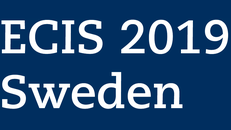 Auf der 27th European Conference on Information Systems (ECIS) in Stockholm (Schweden) ist ein Beitrag aus dem SmartHybrid-Verbund vorgestellt worden. Simon Hagen von der Universität Osnabrück (Teilprojekt „Service Engineering“) präsentierten den Beitrag zum Thema „LEVERAGING THE VALUE OF DATA-DRIVEN SERVICE SYSTEMS IN MANUFACTURING: A GRAPH-BASED APPROACH“.
Auf der 27th European Conference on Information Systems (ECIS) in Stockholm (Schweden) ist ein Beitrag aus dem SmartHybrid-Verbund vorgestellt worden. Simon Hagen von der Universität Osnabrück (Teilprojekt „Service Engineering“) präsentierten den Beitrag zum Thema „LEVERAGING THE VALUE OF DATA-DRIVEN SERVICE SYSTEMS IN MANUFACTURING: A GRAPH-BASED APPROACH“.
Durch die zunehmende Verstetigung der Digitalisierung in Produkten und Dienstleistungen ist die Wissenschaft angehalten, die Entwicklungen zu Erklären und zur Gestaltung der Konzepte (sowohl konzeptionell als auch praktisch) beizutragen. Allerdings erfolgt dies nach wie vor häufig innerhalb der jeweiligen Disziplin, so dass ein praktisch anwendbarer und übergreifender Ansatz zur Integration bisher wenig betrachtet wurde. Der veröffentlichte Beitrag schlägt hierfür einen Ansatz vor, welcher die Verknüpfung von mit Sensorik ausgestatteten Maschinen („Smart Products“) mit Serviceprozessen verbindet.
Der Beitrag ist online abrufbar in der AIS eLibrary.
Abstract:
The utilization of data is a prominent goal for the digital transformation of business models. Re-lated research provides a variety of insights on methods that can be applied in order to gather information as well as managerial perspectives and single use cases that demonstrate the operationalization of such and guide readers through necessary transformative steps. However, with the advent of digitized products and services, goods are decreasingly conceived and marketed exclusively. Rather, they interact with other goods on an informational level and retrieve additional value from their systemic integration. We argue that the utilization of such „data-driven service systems“ requires a holistic perspective that regards the complete „digital value chain“ from the initial data retrieval to the execution of context-based services. This contribution presents a graph-based approach for the integration of event information in service activities in order to leverage the conceptual value. We pilot the transformation of a maintenance process in Manufacturing to evaluate our approach. It turned out that the exemplary process could be simplified from 8 to 4 actions that remained to be executed. Concluding, we discuss the business value and the general applicability of the approach for further use cases.
Weiterhin ist ein Beitrag unter dem Titel „BECAUSE YOUR TAXONOMY IS WORTH IT: TOWARDS A FRAMEWORK FOR TAXONOMY EVALUATION“ vorgestellt worden, an dem der SmartHybrid-Kollege Thorsten Schoormann von der Universität Hildesheim (TP „Process Engineering“) beteiligt war.

